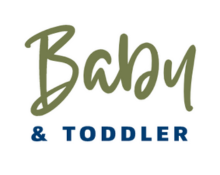Choosing the right prenatal care provider is a significant decision that can impact your pregnancy and childbirth experience. The right provider will support your health, respect your preferences, and help you feel confident and informed throughout your pregnancy journey. This lesson will guide you through the factors to consider when selecting a prenatal care, helping you make an informed choice that aligns with your needs and expectations.
Factors to Consider
Health and Pregnancy Risk Factors
Your health and any existing medical conditions play a crucial role in determining the best prenatal care provider for you. Consider the following:
- High-Risk Pregnancy: If you have a high-risk pregnancy due to medical conditions like diabetes, hypertension, or previous pregnancy complications, an obstetrician (OB/GYN) may be the best choice due to their specialized training and access to advanced medical interventions.
- Low-Risk Pregnancy: For a low-risk pregnancy, you might consider a midwife or family practitioner who can provide a more personalized and holistic approach to care.
Birth Plan and Preferences
Your vision for childbirth is a key factor in choosing a provider. Reflect on your preferences:
- Natural Birth: If you prefer a natural birth with minimal medical intervention, a midwife may be the best fit. Midwives often support home births and birthing center deliveries.
- Hospital Birth: If you feel more comfortable with the resources available in a hospital setting, an obstetrician or a family practitioner who delivers in hospitals might be suitable.
Type of Care
Consider the type of care you desire throughout your pregnancy:
- Personalized and Holistic Care: If you value a personalized and holistic approach, midwives and family practitioners often spend more time on individualized care and emotional support.
- Medical and Surgical Expertise: If you anticipate needing specialized medical care or are comfortable with a more medicalized approach, an obstetrician is likely the best choice.
Availability and Accessibility
Practical considerations include the availability and accessibility of providers in your area:
- Location: Choose a provider whose office is conveniently located and easily accessible.
- Availability: Ensure the provider has availability that matches your schedule and can accommodate your prenatal visits without long wait times.
Communication and Comfort
Feeling comfortable and supported by your prenatal care provider is essential:
- Communication Style: Look for a provider whose communication style matches your needs. Do they listen to your concerns and answer your questions thoroughly?
- Comfort Level: Consider how comfortable you feel with the provider. Trust your instincts and choose someone you feel confident in and at ease with.
Recommendations and Reviews
Gathering information from other sources can help inform your decision:
- Recommendations: Ask friends, family, or other parents for recommendations based on their experiences.
- Reviews: Look for online reviews and testimonials about potential providers to get a sense of other patients’ experiences.
Insurance and Costs
Financial considerations are also important:
- Insurance Coverage: Check which providers are covered by your provincial or territorial health insurance plan to avoid unexpected expenses.
- Cost of Care: If you do not have supplemental insurance or have limited coverage, consider the cost of prenatal care and delivery with different providers.
Steps to Choose the Right Provider
Research Providers
Start by researching providers in your area. Look up obstetricians, midwives, and family practitioners, and make a list of potential candidates.
Schedule Consultations
Many providers offer initial consultations. Schedule appointments with a few providers to discuss your needs and preferences. This can help you get a sense of their approach and whether they are a good fit for you.
Ask Questions
Prepare a list of questions to ask during your consultations, such as:
- What is your approach to prenatal care and childbirth?
- How do you handle high-risk pregnancies and complications?
- What are your views on natural birth and medical interventions?
- What kind of support do you offer postpartum?
Evaluate Your Options
After meeting with different providers, evaluate your options based on the factors discussed above. Consider how each provider aligns with your health needs, birth plan, communication preferences, and overall comfort level.
Make Your Decision
Choose the provider who best meets your criteria and makes you feel confident and supported. Remember, it’s important to feel comfortable with your decision, as this provider will play a significant role in your pregnancy journey.
Choosing the right prenatal care provider is a personal and impactful decision. By considering your health, birth preferences, type of care, accessibility, communication style, recommendations, and costs, you can make an informed choice that aligns with your needs. Taking the time to research and meet with potential providers will help ensure a positive and supportive pregnancy experience.
